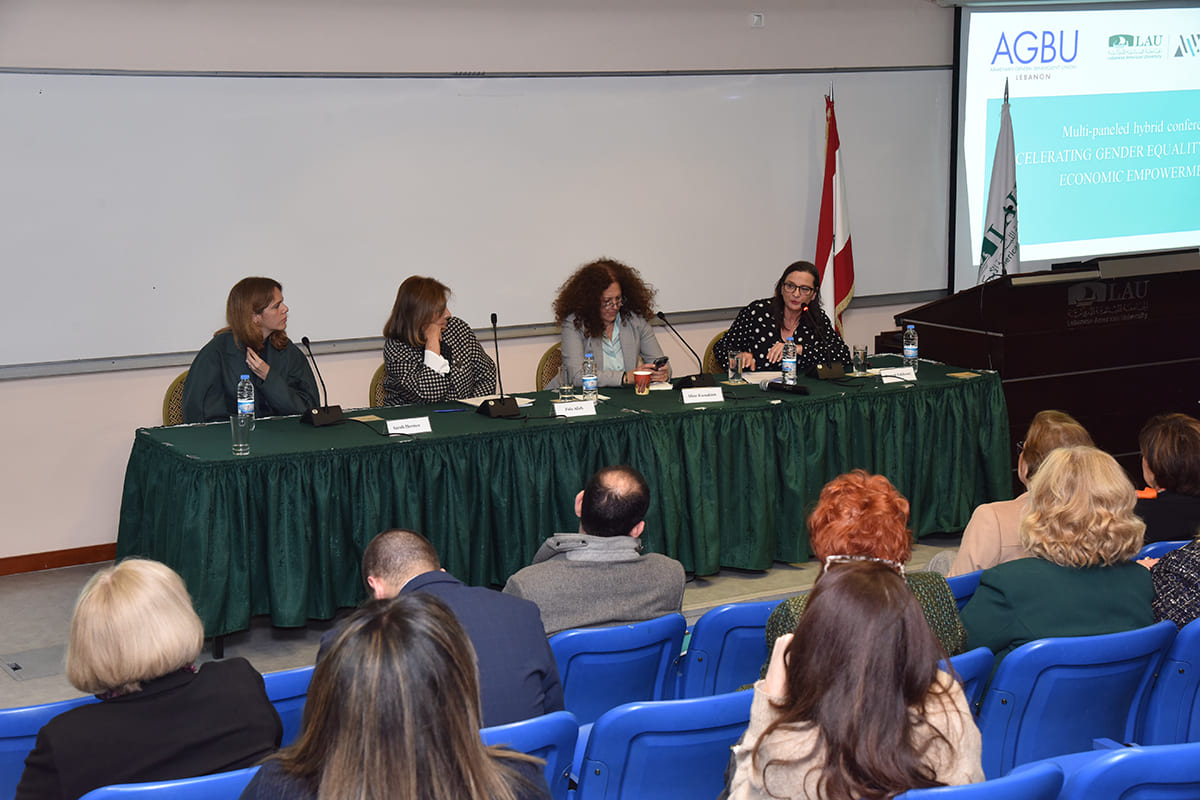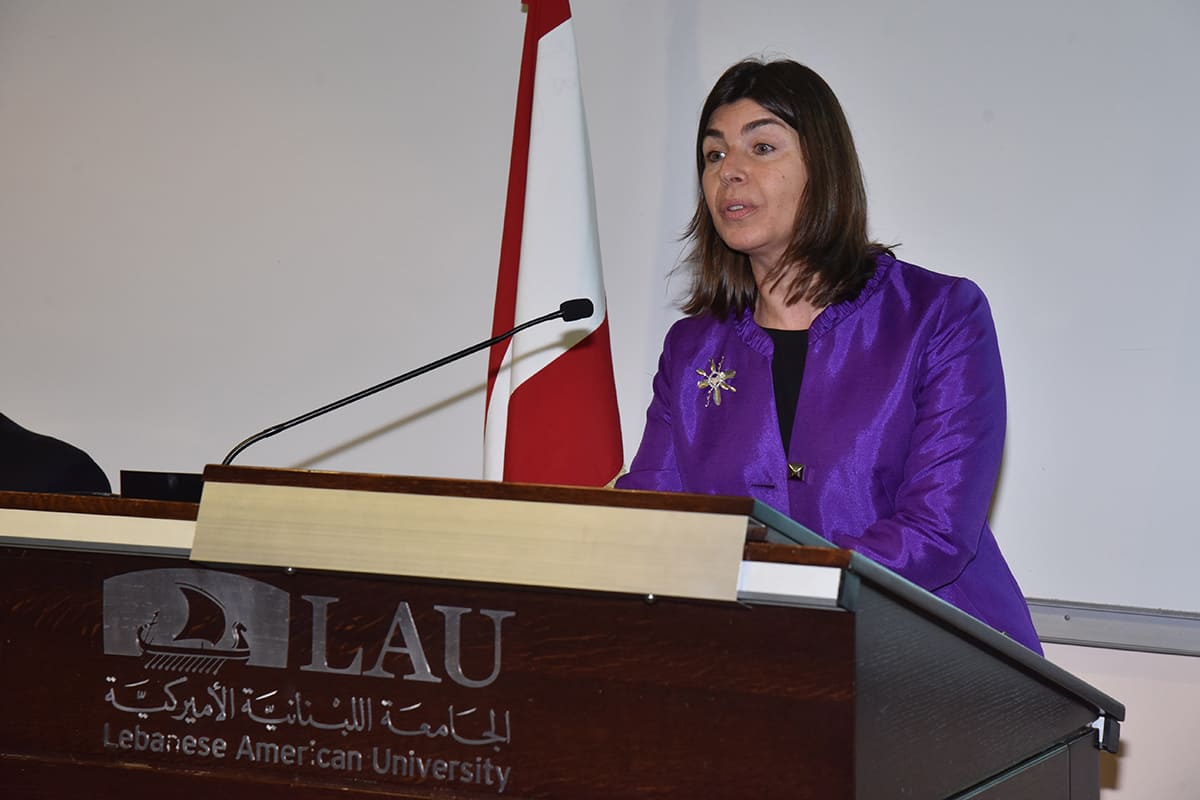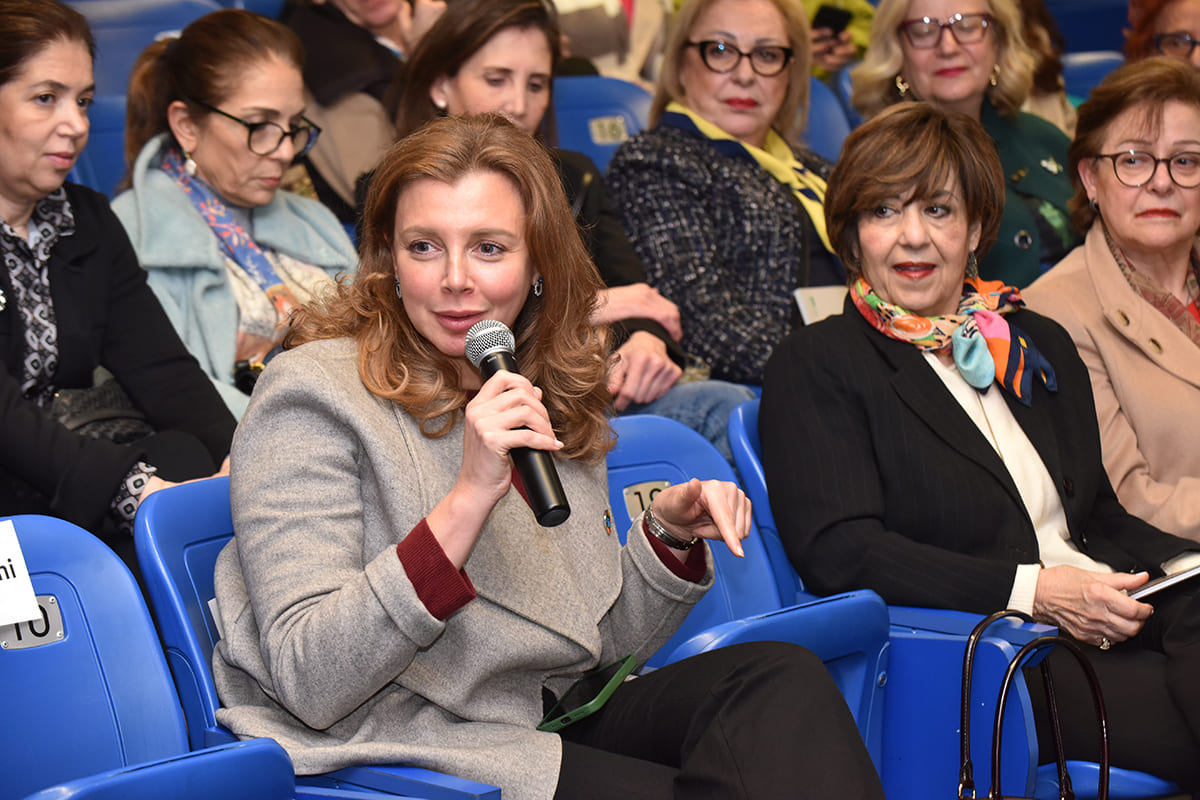Investing in Women is the Key to Progress and Sustainability
The Arab Institute for Women holds a regional dialogue with experts on the intersection of poverty and gender inequality while featuring success stories of Lebanese women entrepreneurs.
Because of their limited agency in economic participation, women are disproportionately impacted during crises, as threats to their security, social justice and overall wellbeing hinder their efforts to eradicate poverty and achieve gender equality. Consequently, the UN chose Invest in Women: Accelerate Progress as this year’s theme for International Women’s Day to shed light on this global issue and advocate for women’s economic empowerment.
Championing this theme, the Arab Institute for Women at LAU (AiW), in collaboration with the Armenian General Benevolent Union, organized its fourth consecutive conference celebrating International Women’s Day at the Adnan Kassar School of Business on March 5, 2024.
AiW Director Myriam Sfeir contextualized the multipaneled-hybrid conference: “Creating a shared agenda and knowledge on women and gender issues, building partnerships and forming strategic collaborations,” she said, “are the key to promoting gender justice.”
Local and international speakers shared recent research findings and insights on the multi-faceted nature of poverty and economic inequality between genders. Lebanese female entrepreneurs also spoke about how they have been economically empowering women and striving for gender equality in the Lebanese community.
Presenting the first panel, Dr. Makram Ouaiss, executive director of the Lebanese Center for Policy Studies (LCPS), reminded attendees of the timeliness of this topic as “conflict and economic hardships are hitting Lebanon and several countries in the Arab region hard,” he said.
“Countries where the economic participation disparity between men and women is high experience lower levels of stability, causing a surge in the rates of crimes, mortality, underage marriages, and so on,” said panelist Ansam Al-Abayechi, regional advisor for the Middle East and North Africa at the Office of the UN High Commissioner for Human Rights.
Economic rights are central to human rights, she added, and both men and women ought to have equal access to work opportunities and be compensated fairly.
Addressing the poverty trap or persistent poverty, Dr. Sama El Hajj Sleiman, a senior research assistant at the UN Economic and Social Commission for Western Asia (ESCWA), discussed how poverty has evolved beyond monetary measures to encompass multiple dimensions, including healthcare, education and asset ownership.
Dr. El Hajj Sleiman also shared research findings of notable gender disparities among the poor from a study covering Africa, Iran, and Lebanon. Notably, she pointed out that one way to break this vicious circle of starting poor and ending up poor is to educate women and empower them economically.
According to Lusine Sargsyan, program analyst at the UN Population Fund (UNFPA) Armenia, conflict- and displacement-related poverty can be addressed by continuously mapping women’s needs and community opportunities, investing in education and vocational training and challenging gender stereotypes.
In the second panel of the conference, moderated by Deenah Fakhoury, executive director of UN Global Compact Network Lebanon, several founders and co-founders of civil society organizations outlined effective strategies they have used to combat poverty and empower women in Lebanon.
Fida Alieh, president of Ashghalouna, provided real-life examples of how teaching widowed and destitute women tailoring and cooking skills has enabled them to achieve financial independence and enhance their families’ living standards.
“There is a ripple effect to empowering women with education and training,” added Sarah Hermez, one of the founders and director of Creative Space Beirut, a social enterprise that offers tuition-free, quality design education to Lebanese youth.
Aline Kamakian, the CEO and founder of Fig Holding and Mayrig restaurant, recounted how she established her first restaurant along with 40 female chefs. By fostering an inclusive and safe workplace environment, she not only enabled them to attain financial stability but also to engage and actively contribute to the community.
In a Q&A session with the audience, at the end of the conference, emphasis lay on the crucial role of legislation in ensuring equal economic and non-economic rights for women, and the need for tailored social security measures to address the various dimensions of poverty.


